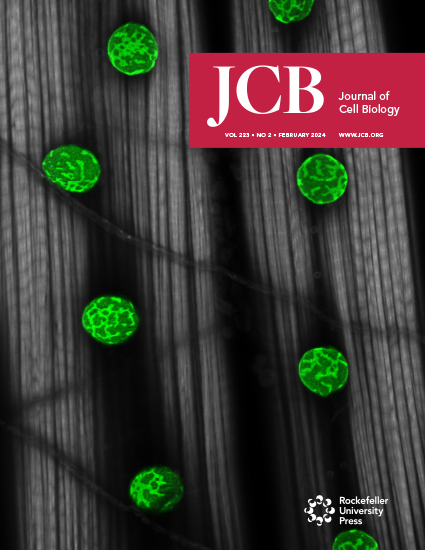生物素-卤素标签配体能够有效地从活细胞中捕获蛋白质变体。
IF 6.4
1区 生物学
Q1 CELL BIOLOGY
引用次数: 0
摘要
HaloTag技术代表了一种研究蛋白质的多功能工具。荧光HaloTag配体用于顺序标记导致组蛋白,内聚蛋白和MCM复合物的不同蛋白质变体的发现。然而,一种有效的生化方法来分离这些不同的蛋白质变体来研究它们的生物学功能是缺失的。主要是技术上的差距,HaloTag工具箱缺乏具有良好细胞渗透性和有效亲和力捕获的亲和配体。在这里,我们描述了一种新的细胞渗透性生物素- halotag配体的设计、合成和验证,它允许在活细胞中快速标记halo标记的蛋白质,并使用链霉亲和素下拉进行有效分离。我们提供了一个概念验证的应用程序,如何使用本文开发的亲和配体在顺序标记生物化学分离蛋白质变体并研究其生物学特性。这种方法能够解决有关基本细胞过程的基本问题,包括基因组复制和染色质维护。本文章由计算机程序翻译,如有差异,请以英文原文为准。
A biotin-HaloTag ligand enables efficient affinity capture of protein variants from live cells.
HaloTag technology represents a versatile tool for studying proteins. Fluorescent HaloTag ligands employed in sequential labeling led to the discovery of distinct protein variants for histones, cohesins, and MCM complexes. However, an efficient biochemical approach to separate these distinct protein variants to study their biological functions is missing. Principally, being a gap in technology, the HaloTag toolbox lacks affinity ligands displaying good cell permeability and efficient affinity capture. Here, we describe the design, synthesis, and validation of a new cell-permeable biotin-HaloTag ligand, which allows rapid labeling of Halo-tagged proteins in live cells and their efficient separation using streptavidin pull-down. We provide a proof-of-concept application of how to use the herein-developed affinity ligand in sequential labeling to biochemically separate protein variants and study their biological properties. This approach enables to address fundamental questions concerning essential cellular processes, including genome duplication and chromatin maintenance.
求助全文
通过发布文献求助,成功后即可免费获取论文全文。
去求助
来源期刊

Journal of Cell Biology
生物-细胞生物学
CiteScore
12.60
自引率
2.60%
发文量
213
审稿时长
1 months
期刊介绍:
The Journal of Cell Biology (JCB) is a comprehensive journal dedicated to publishing original discoveries across all realms of cell biology. We invite papers presenting novel cellular or molecular advancements in various domains of basic cell biology, along with applied cell biology research in diverse systems such as immunology, neurobiology, metabolism, virology, developmental biology, and plant biology. We enthusiastically welcome submissions showcasing significant findings of interest to cell biologists, irrespective of the experimental approach.
 求助内容:
求助内容: 应助结果提醒方式:
应助结果提醒方式:


